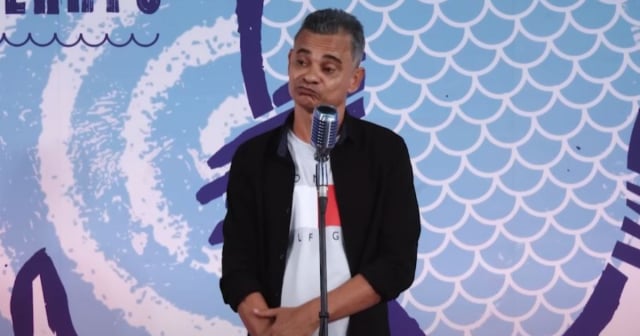Two decades ago, the Cuban comedian Otto Ortiz, who was quite popular at the time for his character El Nene, delivered a monologue that artfully blended humor and social commentary, accurately depicting the everyday struggles on the island.
Currently, 20 years later, their message resonates just as strongly, as issues such as power outages, food shortages, and the difficulty in acquiring modern appliances continue to be part of the daily life of Cubans.
The TikTok profile @cuba_for_trump posted a video where Otto Ortiz states: "The Cuban has a characteristic that no one else in the world has: they turn problems into needs," thus highlighting the resilience of the Cuban people.
With his characteristic sarcasm, the comedian depicted how power outages, rather than being a temporary annoyance, have become normalized in the daily lives of Cubans, a situation that is even more evident today due to the worsening energy crisis.
“The day the power stays on, I feel unwell. When it goes out, I think, ‘Great, one less problem, one less worry,’” he said ironically, highlighting a reality that persists after two decades.
Additionally, he compared the blackouts in Cuba to those that occurred in New York in 2003, 1977, and 1965. While New Yorkers printed commemorative T-shirts that read "Blackout New York," the comedian imagined what a similar situation would look like on the island. "In Cuba, there’s no closet that could handle that. It would be a maxi skirt with all the blackout schedules written down."
Another recurring theme in his monologue was the refrigerator, which had become a symbol of hardship. In this regard, he nostalgically recalled his old INPUD model from the 70s, which, despite its flaws, at least served its purpose.
With self-deprecating humor, he recounted how he had sold his INPUD to buy a modern two-door LG, only to discover that it couldn’t freeze anything: “The INPUD was entertaining: ice would get stuck at the top, bottom, and sides. But with this one, I can’t even make ice,” he said.
"The Cuban doesn't have a refrigerator; they have an additional member of the family," he joked, emphasizing the importance of these appliances in a Cuban household, where keeping it stocked is a constant challenge.
For him, an empty refrigerator is laughable at first, but if you look at it for more than a minute, "you're going to cry until the next day," a situation of extreme scarcity that continues today.
Furthermore, the comedian addressed the lives of children in Cuba with his usual blend of tenderness and biting humor: “When I wake up, my youngest daughter says to me: ‘Dad, the milk,’ and she’s 8 years old,” referring to the chronic scarcity of basic goods.
However, his words reflected that, two decades ago, children were already facing a shortage of milk, a problem that, 20 years later, remains unsolved under the regime.
Ortiz's monologue, while filled with humor, serves as a testament to the structural difficulties faced by Cuban society, many of which have remained unchanged for two decades.
Frequently Asked Questions about Otto Ortiz's Humor and Reality in Cuba
Why does Otto Ortiz's monologue remain relevant 20 years later?
Otto Ortiz's monologue remains relevant as it accurately depicts the everyday struggles on the island, such as power outages and food shortages, issues that continue to persist in the daily lives of Cubans two decades later.
How does Otto Ortiz use humor to criticize the situation in Cuba?
Otto Ortiz uses humor to critique the situation in Cuba by blending irony with everyday references, as when he says that an empty refrigerator can make you cry until the next day, highlighting the ongoing scarcity of food and basic goods.
What does the refrigerator symbolize in Otto Ortiz's monologue?
In Otto Ortiz's monologue, the refrigerator symbolizes the precariousness in Cuba. The comedian recalls his old INPUD from the 1970s as an appliance that, despite its defects, served its purpose, unlike modern ones that are useless for freezing anything, thus reflecting the challenge of keeping a home stocked.
How does Otto Ortiz address the energy crisis in Cuba in his recent monologues?
In his recent monologues, Otto Ortiz addresses the energy crisis in Cuba with a humorous tone, stating that Cubans are so used to power outages that they now consider them part of their daily lives. This underscores the seriousness of the energy issues that remain unresolved.
What impact does Otto Ortiz's humor have on Cuban society?
Otto Ortiz's humor has a significant impact on Cuban society as it provides an outlet for the challenges of daily life while also encouraging reflection on critical issues such as the scarcity of basic goods and the shortcomings of the electrical system.
Filed under:
